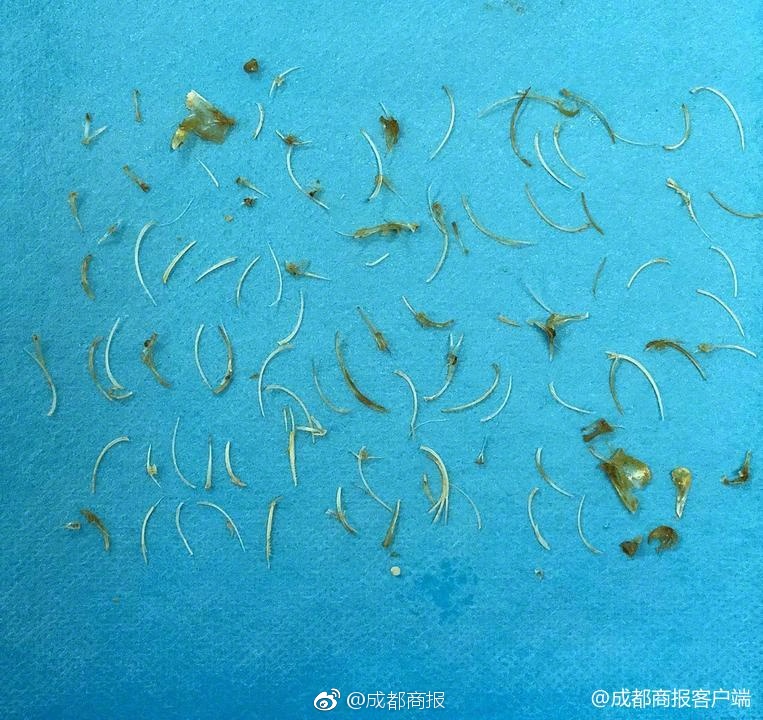
1. The five major functions of the operating system include: process and processor management, operation management, storage management, equipment management and file management.
2. A [Analysis] As the manager of the resources of the computer system, the main function of the operating system is to manage and schedule all the software and hardware resources of the system reasonably and improve the overall performance of the computer system.
3. Operating System (abbreviation: OS) is a group of interrelated system software programs that supervise and control computer operation, use and run hardware, software resources and provide public services to organize user interaction.
4. The main function of the operating system: process management. Resident programs and applications run on the basis of the process.When the computer adopts the von Neumann structure, each CPU can only run one process at a time.
5. The operating system has five functions: processor management: mainly controls and manages the work of the CPU. Storage management: mainly allocate and manage memory. Device management: mainly manage basic input and output devices. File management: responsible for the organization, storage, operation and protection of computer files.
6. The operating system has five functions: processor management: mainly controls and manages the work of the CPU. Storage management: mainly carry out memory allocation and management device management: mainly manage basic input and output device file management: responsible for the organization, storage, operation and protection of computer files, etc.

1. The storage management function of the operating system is to manage memory resources. It mainly realizes memory allocation and recovery, storage protection and memory expansion. The device management of the device management operating system is responsible for allocating and recycling external devices, and controlling external devices to operate according to the requirements of user programs.
2. The functions of the computer operating system include: processor management, memory management, device management, file management, job management and other functional modules. Processor management. The most basic function of processor management is to handle interrupt events. The processor can only detect interrupt events and generate interrupts and cannot process them.
3. The five major functions of the operating system are processor management, memory management, device management, file management and job management. Processor management The most basic function of processor management is to process interrupt events. After configuring the operating system, various events can be processed.
1. The main functions of the computer operating systemIt is process management. Its work is mainly process scheduling. In the case of a single user and a single task, the processor is only exclusive to one user's task. The work of process management is very simple.
2. The five major functions of the operating system are processor management, memory management, device management, file management and job management. Processor management The most basic function of processor management is to process interrupt events. After configuring the operating system, various events can be processed.
3. The role and basic functions of the operating system: the basic functions of the operating system include task management, interface management, human-computer interaction, graphical interface, voice control and virtual reality, etc.; file management; storage management, which is essentially the management of storage "space", mainly refers to the management of the main memory. Reason.
4. The basic functions of the operating system include process management, memory management, file system, network communication, security mechanism, user interface and driver. The operating system is the interface between the user and the computer, and also the interface between computer hardware and other software.
5. The five functions of the operating system are processor management, memory management, device management, file management and job management. Processor management The most basic function of processor management is to handle interrupt events. After configuring the operating system, various events can be processed.
6. The operating system has five functions: processor management: mainly controls and manages the work of the CPU. Storage management: mainly allocate and manage memory. Device management: mainly manage basic input and output devices. File management: responsible for the organization, storage, operation and protection of computer files.
OKX download-APP, download it now, new users will receive a novice gift pack.
1. The five major functions of the operating system include: process and processor management, operation management, storage management, equipment management and file management.
2. A [Analysis] As the manager of the resources of the computer system, the main function of the operating system is to manage and schedule all the software and hardware resources of the system reasonably and improve the overall performance of the computer system.
3. Operating System (abbreviation: OS) is a group of interrelated system software programs that supervise and control computer operation, use and run hardware, software resources and provide public services to organize user interaction.
4. The main function of the operating system: process management. Resident programs and applications run on the basis of the process.When the computer adopts the von Neumann structure, each CPU can only run one process at a time.
5. The operating system has five functions: processor management: mainly controls and manages the work of the CPU. Storage management: mainly allocate and manage memory. Device management: mainly manage basic input and output devices. File management: responsible for the organization, storage, operation and protection of computer files.
6. The operating system has five functions: processor management: mainly controls and manages the work of the CPU. Storage management: mainly carry out memory allocation and management device management: mainly manage basic input and output device file management: responsible for the organization, storage, operation and protection of computer files, etc.

1. The storage management function of the operating system is to manage memory resources. It mainly realizes memory allocation and recovery, storage protection and memory expansion. The device management of the device management operating system is responsible for allocating and recycling external devices, and controlling external devices to operate according to the requirements of user programs.
2. The functions of the computer operating system include: processor management, memory management, device management, file management, job management and other functional modules. Processor management. The most basic function of processor management is to handle interrupt events. The processor can only detect interrupt events and generate interrupts and cannot process them.
3. The five major functions of the operating system are processor management, memory management, device management, file management and job management. Processor management The most basic function of processor management is to process interrupt events. After configuring the operating system, various events can be processed.
1. The main functions of the computer operating systemIt is process management. Its work is mainly process scheduling. In the case of a single user and a single task, the processor is only exclusive to one user's task. The work of process management is very simple.
2. The five major functions of the operating system are processor management, memory management, device management, file management and job management. Processor management The most basic function of processor management is to process interrupt events. After configuring the operating system, various events can be processed.
3. The role and basic functions of the operating system: the basic functions of the operating system include task management, interface management, human-computer interaction, graphical interface, voice control and virtual reality, etc.; file management; storage management, which is essentially the management of storage "space", mainly refers to the management of the main memory. Reason.
4. The basic functions of the operating system include process management, memory management, file system, network communication, security mechanism, user interface and driver. The operating system is the interface between the user and the computer, and also the interface between computer hardware and other software.
5. The five functions of the operating system are processor management, memory management, device management, file management and job management. Processor management The most basic function of processor management is to handle interrupt events. After configuring the operating system, various events can be processed.
6. The operating system has five functions: processor management: mainly controls and manages the work of the CPU. Storage management: mainly allocate and manage memory. Device management: mainly manage basic input and output devices. File management: responsible for the organization, storage, operation and protection of computer files.
Binance app download Play Store
author: 2025-01-23 03:22 OKX download
OKX download
993.65MB
Check Binance APK
Binance APK
855.55MB
Check OKX Wallet Sign up
OKX Wallet Sign up
474.33MB
Check OKX Wallet to exchange
OKX Wallet to exchange
613.57MB
Check OKX review
OKX review
738.22MB
Check Binance login App
Binance login App
642.52MB
Check Binance app
Binance app
956.22MB
Check Binance login App
Binance login App
229.32MB
Check OKX Wallet to exchange
OKX Wallet to exchange
596.36MB
Check Binance download
Binance download
628.18MB
Check Binance download APK
Binance download APK
197.53MB
Check OKX download
OKX download
622.43MB
Check OKX Wallet app
OKX Wallet app
829.55MB
Check okx.com login
okx.com login
386.67MB
Check Binance login
Binance login
385.95MB
Check OKX Wallet
OKX Wallet
498.66MB
Check OKX Wallet to exchange
OKX Wallet to exchange
227.74MB
Check OKX app
OKX app
222.63MB
Check OKX Wallet Sign up
OKX Wallet Sign up
458.56MB
Check Binance market
Binance market
586.28MB
Check Binance login
Binance login
422.51MB
Check Binance app
Binance app
241.56MB
Check Binance login
Binance login
682.12MB
Check Binance app
Binance app
689.43MB
Check Binance app
Binance app
129.99MB
Check Binance download
Binance download
885.83MB
Check Binance login
Binance login
181.71MB
Check Binance app
Binance app
112.58MB
Check Binance download Android
Binance download Android
859.63MB
Check Binance app
Binance app
933.19MB
Check Binance Download for PC Windows 10
Binance Download for PC Windows 10
727.33MB
Check OKX Wallet download
OKX Wallet download
858.15MB
Check OKX Wallet apk download
OKX Wallet apk download
999.57MB
Check Binance APK
Binance APK
952.67MB
Check OKX Wallet login
OKX Wallet login
436.85MB
Check Binance exchange
Binance exchange
122.93MB
Check
Scan to install
OKX download to discover more
Netizen comments More
1559 偏听偏言网
2025-01-23 03:31 recommend
488 蓬门荜户网
2025-01-23 03:11 recommend
1418 浑身解数网
2025-01-23 03:01 recommend
1319 鸿爪雪泥网
2025-01-23 02:57 recommend
938 余音缭绕网
2025-01-23 02:04 recommend